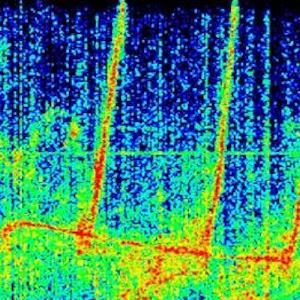The term 'Punk' is associated with liberation, rage, dissent, noise, violence, drugs, the ultra-left and ultra-right, many things be it political, cultural or musical. A counter-culture that mutates every generation, trashing and rejecting the previous one. This feature looks at the side of punk which is born of radical ideologies, of fascism, futurism and even embracing nazism. The extreme 'right of punk culture' which plays out today via online extremism coordinated by supremacist groups is big businesses. The opposing forces within punk culture that collides again and again on grounds of racism, sexism and nationalism. Take note of the incorrect definition cited on Wikipedia "Punk rock (or "punk") is a rock music genre that developed in the mid-1970s in the United States, United Kingdom, and Australia ..." However mountains of evidence, narratives and records shows us that punk never started in select nations, nor with one clear manifesto or group of musicians. Punk ideology, poetry, music, art, fashion, propaganda and content is a product of many conflicting co-existing schools of thought. Was Warhol Punk? Surely Dada was proto-punk. Borrowed from prison slang, the word 'punk' was first used in a musical context first in 1971, with garage bands compilations such as Lenny Kaye’s Nuggets (1972).
Punk, the big transgression has a two faces. "Punk music was often defined by the dress, the make-up, the hair, the attitude, violent gangs" says rock-music encyclopedia classicrockhistory.com. However that is a general cliche shared by conservative writers and folks who do don't go beyond outward projection. The preposterous imagery of punk that we are shown is ok : especially when compared to the tribes and 'jungle-folks' sporting their traditions, fashion, music and customs, which have co-existed on the sidelines of civilisation for thousands of years. The side of punk that you don't see or read much on The Rolling Stones, Spin, Hammer, Hit Parader and such institutional treadmills is one of extremity, anarchism, fascism and politically charged ideology. Mainstream's take on Punk - 'Malcolm McLaren, May 1975, hugely inspired by New York's 'CBGB club and Harlem, lead to open a new 'sex shop' in London which becomes the founding narrative of the british punk scene. Actually that is a chaste and short-sighted way to view the birth and explosion of punk culture, not just in England, but many parts of Europe and USA. While the Beatles, Yardbirds and Led Zeppelin were 'Gods' in the continuum of british mainstream culture, winners based on icon worship, punk was the rejection of those very notions. Icon worship was for losers, for those who went to church or believed the Prime Minister. "These bands are so famous because they make people feel good. They praise sex, magic, drugs, peace and psychedelia ... So what? We Don't" says guitarist David Johansen of The New York Dolls, in an interview published in 1977. The identity of the punk is essentially pit against the identity of the state and of it's bourgeois. "The record companies could not understand nor swallow the load of punk that was coming in from Liverpool, Manchester and other cities. The run down clubs and venues were full of punks, anarchists, leftists and transgender folks while the record stores were peddling the likes of The Who, Beatles and Eric Clapton. We knew the labels did not care about the music but they were ready to pay hard cash to us, punks with 'street-cred', because they were desperate for something new" recalls Tony Barber, bassist of the the Buzzcocks in interview with Poptone Records.
Punk is the formation and intervention of fledgling values by a generation which was hugely excluded. British punk has it's roots made of thousands of disenfranchised, unemployed and frustrated youth. The poorest sections of british society sprouted two radical movements mid 1960s. One group of artists, poets and writers wielded nationalism and english pride perpetuating conservative anglo-christian values. The other group made of anarchists, marxists, libertarians were clearly inspired by new wave of philosophers like Foucault, Karl Jung, Rudolf Rocker and the Frankfurt School. The latter group edging left, the former sliding right. In extreme forms as well. Punk artist, singer and activist Henry Rollins states "I met punks who totally believed in Adolf Hitler. You can read the Redneck Manifesto written for radicalising american kids. It still sells today. In any kind of white culture there are extreme punks... You can see them even in Russia, Poland, Israel and Japan... " Italian fascism collapsed as a political system in 1946, yet it took new viral roots via sound-poetry, noise music, neo-classical arts and futurism. Filippo Marinetti considered an icon of this genesis is a big influence on punk bands rising from Italy as late as 1980. Ezrah Pound, the radical 'mad-cap' [fascist modernist] then, now worshipped by various 'Alt-Right' groups in the U.S and U.K, four decades later. Jane County, american song-writer, singer and actress is one of the earliest examples of right-wing, radical punk. Her manic stage performances, much controversial views on heterosexual society and long touring with the band Wayne County & the Electric Chairs won her fame and prosperity. Jane County became 'rock's first openly transgender singer'. A transexual trailblazer and Stonewall Riots veteran, her career is marked with confrontation with police, administration and institutions. She recalls in a 1987 interview published later on Dangerous Minds "By law you were required to wear a couple of articles of men’s clothing so people wouldn’t mistake you for a “real woman”! That’s the way it was! Your clothing was policed, and you could be put in jail for wearing the wrong dress. Back 60s the term “trans.” did not even exist..." Margaret Thatcher's 'Iron-Fist' rule as prime minister of England, has a connection with the monumental rise of punk in the country. The 'state-tyranny' which ran close to a decade, counts for the the death of thousands of civilians, activists, writers and revolutionaries in occupied Northern Ireland. "Cause I want to be anarchy No dogs body .. Anarchy for the U.K. It's coming sometime and maybe..." Sex Pistols 1977 - the song became the anthem for punk and youth liberation, however the promise of anarchy and freedom was gradually sequestered into a new industry with millions of fans and many post-punk sparks around the world.
Punk, the big transgression has a two faces. "Punk music was often defined by the dress, the make-up, the hair, the attitude, violent gangs" says rock-music encyclopedia classicrockhistory.com. However that is a general cliche shared by conservative writers and folks who do don't go beyond outward projection. The preposterous imagery of punk that we are shown is ok : especially when compared to the tribes and 'jungle-folks' sporting their traditions, fashion, music and customs, which have co-existed on the sidelines of civilisation for thousands of years. The side of punk that you don't see or read much on The Rolling Stones, Spin, Hammer, Hit Parader and such institutional treadmills is one of extremity, anarchism, fascism and politically charged ideology. Mainstream's take on Punk - 'Malcolm McLaren, May 1975, hugely inspired by New York's 'CBGB club and Harlem, lead to open a new 'sex shop' in London which becomes the founding narrative of the british punk scene. Actually that is a chaste and short-sighted way to view the birth and explosion of punk culture, not just in England, but many parts of Europe and USA. While the Beatles, Yardbirds and Led Zeppelin were 'Gods' in the continuum of british mainstream culture, winners based on icon worship, punk was the rejection of those very notions. Icon worship was for losers, for those who went to church or believed the Prime Minister. "These bands are so famous because they make people feel good. They praise sex, magic, drugs, peace and psychedelia ... So what? We Don't" says guitarist David Johansen of The New York Dolls, in an interview published in 1977. The identity of the punk is essentially pit against the identity of the state and of it's bourgeois. "The record companies could not understand nor swallow the load of punk that was coming in from Liverpool, Manchester and other cities. The run down clubs and venues were full of punks, anarchists, leftists and transgender folks while the record stores were peddling the likes of The Who, Beatles and Eric Clapton. We knew the labels did not care about the music but they were ready to pay hard cash to us, punks with 'street-cred', because they were desperate for something new" recalls Tony Barber, bassist of the the Buzzcocks in interview with Poptone Records.
Punk is the formation and intervention of fledgling values by a generation which was hugely excluded. British punk has it's roots made of thousands of disenfranchised, unemployed and frustrated youth. The poorest sections of british society sprouted two radical movements mid 1960s. One group of artists, poets and writers wielded nationalism and english pride perpetuating conservative anglo-christian values. The other group made of anarchists, marxists, libertarians were clearly inspired by new wave of philosophers like Foucault, Karl Jung, Rudolf Rocker and the Frankfurt School. The latter group edging left, the former sliding right. In extreme forms as well. Punk artist, singer and activist Henry Rollins states "I met punks who totally believed in Adolf Hitler. You can read the Redneck Manifesto written for radicalising american kids. It still sells today. In any kind of white culture there are extreme punks... You can see them even in Russia, Poland, Israel and Japan... " Italian fascism collapsed as a political system in 1946, yet it took new viral roots via sound-poetry, noise music, neo-classical arts and futurism. Filippo Marinetti considered an icon of this genesis is a big influence on punk bands rising from Italy as late as 1980. Ezrah Pound, the radical 'mad-cap' [fascist modernist] then, now worshipped by various 'Alt-Right' groups in the U.S and U.K, four decades later. Jane County, american song-writer, singer and actress is one of the earliest examples of right-wing, radical punk. Her manic stage performances, much controversial views on heterosexual society and long touring with the band Wayne County & the Electric Chairs won her fame and prosperity. Jane County became 'rock's first openly transgender singer'. A transexual trailblazer and Stonewall Riots veteran, her career is marked with confrontation with police, administration and institutions. She recalls in a 1987 interview published later on Dangerous Minds "By law you were required to wear a couple of articles of men’s clothing so people wouldn’t mistake you for a “real woman”! That’s the way it was! Your clothing was policed, and you could be put in jail for wearing the wrong dress. Back 60s the term “trans.” did not even exist..." Margaret Thatcher's 'Iron-Fist' rule as prime minister of England, has a connection with the monumental rise of punk in the country. The 'state-tyranny' which ran close to a decade, counts for the the death of thousands of civilians, activists, writers and revolutionaries in occupied Northern Ireland. "Cause I want to be anarchy No dogs body .. Anarchy for the U.K. It's coming sometime and maybe..." Sex Pistols 1977 - the song became the anthem for punk and youth liberation, however the promise of anarchy and freedom was gradually sequestered into a new industry with millions of fans and many post-punk sparks around the world.
Punk actually became famous [mainstream] in Germany as late as 1978 as we see in the cover story by Der Spegiel "Culture from the slums : Brutal & Ugly". The cover shows a cut-out of 'Susie Sue' wearing a 'swastika' band, SS black dress, boots and fishnets. Goth sub-culture colliding with provocative punk ethics. Episodes of public transgression, activism, riots and anti-authoritarian movements occurred repeatedly in the slums of urban England, France and Germany. The middle-finger raised earlier by the Dada Movement [Berlin, Paris, Barcelona] to conformist society and catholic hegemony had resurfaced in furious and novel ways across Europe. Punk reflected the sentiments of workers, unionists, war veterans, skin-heads and society drop-outs, pouring into the streets of Hamburg, Frankfurt, Paris, East-Berlin, Liverpool and London. This mass dissent is mirrored in the 'Soundtracks for the Apocalypse' and songs of German band Slime like "Der Tod ist ein Meister aus Deutschland" (Death is a master from Germany). Photos of Sid Vicious as a kid, seen running around the streets wearing a big 'swastika' t-shirt."Punks acted within their own form of futurity, offering an alternative 'new' state that was complex and not simply destructive: “a back-to-the-prehistorical idealism, utopian was the punk manifesto. Was certainly different from the technological utopianism. The punk exposed the devious goals of the civilizers..." written in 1993 Archive of East German Punk Culture. "When your black, you are a punk all the time" said Bad Brains in the recent Short history of Black Punk in the U.S.
CyberPunks Versus The Father-Land - "Information technology, video and television changed the foundations of punk. The old punk ideology had lost it's original brute force and violent nature by the late 80s. The rise of industrial, electronic and experimental music plus avant-garde arts pushed punk to a sort of persona non-grata status. Punk was perceived as a 'special outcast' in mainstream culture [hundreds of hollywood flicks associate the word 'punk' with the poor, drug-addicts and the homeless. Punk stereotypes were caste many times as an example of savagery, non conformity and discontent : Similar to how we view tribes and marginalised people in different parts of the world in movies and on TV] 1980's - Provocative music like heavy metal, goth-metal, hard-rock and speed-metal which drew massive inspiration from punk culture had gradually exploded into a huge business first in the US and UK, consequently into the rest of the world" says Thierry De Verg, studying counter-cultural theory and post-war popular culture in Germany. Punk's transgression, rebellious nature, the music, radio and magazines was in need of new protagonists - New punks in the digital age. Cyber-feminism colluding with punk ethics way back in 1992. Original co-conspirators of this manifesto and imagery were Virgina Barratt, Julianne Pierce, Francesca da Rimini and Josephine Starrs. Read Here about the VNS Merchants Of Slime. “Anyone who writes an autobiography is either a twat or broke. I’m a bit of both” writes Viv Albertine, guitarist for British punk band the Slits, in the introduction to her book : 'Clothes, Clothes, Clothes. Music, Music, Music. Boys, Boys, Boys. Right-wing extremist music, labelled as 'Nazi rock' continues to be one of the most problematic of popular musical genres. Since the mid 90s fascist punk music and neo-nazi gangs have increasing followers and growing business : which helped some of them formalise into far-right collectives and institutions. Record labels, radio stations, websites, t-shirts, merchandise, jewellery, cups and mugs of neo-Nazi punk music too. Initially breaking ground in the UK and Germany spreading over to the US, into Norway, Sweden and even Mexico, Canada and Argentina. What accounts for the paradoxical transformation of the skinheads and punk subculture into a force 'organised' around appreciation of race, propagating conservative and neo-Nazi values? How and why is a movement based on an "English" working-class identity meaningful to the youth in nations where english is not spoken? Circa 2003, a German study notes that the "boundaries between the skinhead and neo-Nazi scenes are hazy and speaks of the creation of skinhead/neo-Nazi. Made of small and local hybrid sub-cultures. Music plays a key mediating role in this process and helps the far-right groups to raise their voices and form a manifesto." An increasing number of right-wing concerts, events and content have been organised and created by local units of the international skinhead organisation, Blood & Honor and Hammerskins. Similar groups like BHH are on the rise in Hungary, Argentina, Denmark, USA and Poland. The old 'nordic-aryan white-only fantasy' had taken grip again in the new generation via punk, heavy-metal, fascism and nazism. Go figure. Make Punk Great Again?
"Transgression in human nature is like a hammer. One can 'smash' anything in society, given the collective force forms the apt narrative" states Florian Cramer and Stewart Home at the recent Disruption Network Lab presentation in Berlin. Today the term 'punk' has no singular meaning nor purpose. Experts cannot agree on who and what is the contemporary punk. Both ends of the extreme political spectrum claim to be punk - calling the other fake. Punk dissolved, mutated and now skewed by elements of devious authoritarianism, is very far from what started out originally. American conservative ideology robbed punk. Extreme Marxism also pilfered punk to fit it's own agenda. The music industry butchered punk into small chunks and market friendly packages. The old punk pioneers relegated to their respective documentaries and memoirs. Glossy fashion magazines ate up the rest of punk. See artists in hi-tech helmets playing electronic music called 'Daft Punk'. The internet is the biggest battlefield of 'cyber punks' hatching from all corners of society. Infowars, Meme-wars, Proud Boys, Daily Stormer, Brietbart, Milo Yiannopoulos are the new avatars of fascist pro-white 'punk culture' in the new millennium. They hate the outsiders and swear by their 'Fatherland'. The extremism is loaded with western chauvinism, conspiracy theories, doomsday volunteering, aliens, pro-racism, xenophobic anti-feminist propaganda. Vice Magazine founder Gavin McInnes has a fascist agenda. Evidence shows his close links with the formation of 'Proud Boys' in 2015 - all white gang which lead the Charlottesville riots in 2017.The transgressive nature of punk in the 21st century is made of many waves and groups which co-exist if not concur. Movements likes the 'Antifa', anarcho capitalism, bitcoin, ultra-feminists, transgender solidarity groups and anti-globalisation, anti-racist groups form the left to liberal side.
Left or Right, punk or not, propaganda and information technology have become the weapons in this intra-societal confrontation. From 'Occupy' to 'Anonymous' to #metoo to 'Black Lives Matter', public movements have found inspiration from punk ideology. The fascists, nationalists, neo-aryans and neo-Nazis too have drawn a lot from punk culture. Punk music's energy has percolated into various other forms like electronica, pop, rap and even jazz. The public struggle for freedom and an open society continues. Punk today in it's many forms and skin colours is still literally staring down the barrel of a gun. Difficult to guess who is actually holding the weapon...
CyberPunks Versus The Father-Land - "Information technology, video and television changed the foundations of punk. The old punk ideology had lost it's original brute force and violent nature by the late 80s. The rise of industrial, electronic and experimental music plus avant-garde arts pushed punk to a sort of persona non-grata status. Punk was perceived as a 'special outcast' in mainstream culture [hundreds of hollywood flicks associate the word 'punk' with the poor, drug-addicts and the homeless. Punk stereotypes were caste many times as an example of savagery, non conformity and discontent : Similar to how we view tribes and marginalised people in different parts of the world in movies and on TV] 1980's - Provocative music like heavy metal, goth-metal, hard-rock and speed-metal which drew massive inspiration from punk culture had gradually exploded into a huge business first in the US and UK, consequently into the rest of the world" says Thierry De Verg, studying counter-cultural theory and post-war popular culture in Germany. Punk's transgression, rebellious nature, the music, radio and magazines was in need of new protagonists - New punks in the digital age. Cyber-feminism colluding with punk ethics way back in 1992. Original co-conspirators of this manifesto and imagery were Virgina Barratt, Julianne Pierce, Francesca da Rimini and Josephine Starrs. Read Here about the VNS Merchants Of Slime. “Anyone who writes an autobiography is either a twat or broke. I’m a bit of both” writes Viv Albertine, guitarist for British punk band the Slits, in the introduction to her book : 'Clothes, Clothes, Clothes. Music, Music, Music. Boys, Boys, Boys. Right-wing extremist music, labelled as 'Nazi rock' continues to be one of the most problematic of popular musical genres. Since the mid 90s fascist punk music and neo-nazi gangs have increasing followers and growing business : which helped some of them formalise into far-right collectives and institutions. Record labels, radio stations, websites, t-shirts, merchandise, jewellery, cups and mugs of neo-Nazi punk music too. Initially breaking ground in the UK and Germany spreading over to the US, into Norway, Sweden and even Mexico, Canada and Argentina. What accounts for the paradoxical transformation of the skinheads and punk subculture into a force 'organised' around appreciation of race, propagating conservative and neo-Nazi values? How and why is a movement based on an "English" working-class identity meaningful to the youth in nations where english is not spoken? Circa 2003, a German study notes that the "boundaries between the skinhead and neo-Nazi scenes are hazy and speaks of the creation of skinhead/neo-Nazi. Made of small and local hybrid sub-cultures. Music plays a key mediating role in this process and helps the far-right groups to raise their voices and form a manifesto." An increasing number of right-wing concerts, events and content have been organised and created by local units of the international skinhead organisation, Blood & Honor and Hammerskins. Similar groups like BHH are on the rise in Hungary, Argentina, Denmark, USA and Poland. The old 'nordic-aryan white-only fantasy' had taken grip again in the new generation via punk, heavy-metal, fascism and nazism. Go figure. Make Punk Great Again?
"Transgression in human nature is like a hammer. One can 'smash' anything in society, given the collective force forms the apt narrative" states Florian Cramer and Stewart Home at the recent Disruption Network Lab presentation in Berlin. Today the term 'punk' has no singular meaning nor purpose. Experts cannot agree on who and what is the contemporary punk. Both ends of the extreme political spectrum claim to be punk - calling the other fake. Punk dissolved, mutated and now skewed by elements of devious authoritarianism, is very far from what started out originally. American conservative ideology robbed punk. Extreme Marxism also pilfered punk to fit it's own agenda. The music industry butchered punk into small chunks and market friendly packages. The old punk pioneers relegated to their respective documentaries and memoirs. Glossy fashion magazines ate up the rest of punk. See artists in hi-tech helmets playing electronic music called 'Daft Punk'. The internet is the biggest battlefield of 'cyber punks' hatching from all corners of society. Infowars, Meme-wars, Proud Boys, Daily Stormer, Brietbart, Milo Yiannopoulos are the new avatars of fascist pro-white 'punk culture' in the new millennium. They hate the outsiders and swear by their 'Fatherland'. The extremism is loaded with western chauvinism, conspiracy theories, doomsday volunteering, aliens, pro-racism, xenophobic anti-feminist propaganda. Vice Magazine founder Gavin McInnes has a fascist agenda. Evidence shows his close links with the formation of 'Proud Boys' in 2015 - all white gang which lead the Charlottesville riots in 2017.































0 -